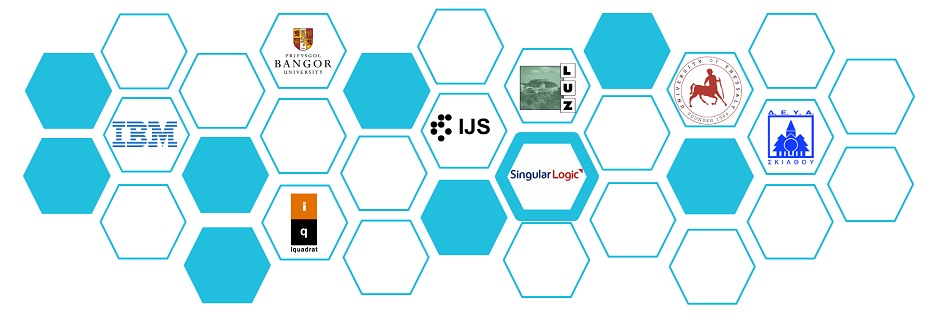Holistic Surface Water and Groundwater Management for Sustainable Cities (Water4Cities) - (03/2017 - 09/2021, EU H2020)

Urban water management becomes progressively more challenging in the view of population growth and increasing complexity of water management infrastructure. In this line, there is an ever increase demand from the water providers’ and public authorities’ perspective to critically evaluate the existing water ecosystems at city level in respect to the water supply, waste water treatment, reuse potential and the effect the growing population has on the water ecosystem and endangered species.
The Water4Cities project aims to develop the necessary models and associated platform that will enable water providers and relevant stakeholders to a) monitor in real-time the urban water resources; b) support their decisions for optimal urban water management causing minimal environmental impact and c) involve policy makers, corporations and the public to provide the support for sound and balanced decision-making. Beyond the scientific results, Water4Cities will target the exchange of knowledge among project partners. The Water4Cities project requires the collaboration of researchers in different research areas, i.e., water management, urban infrastructure management, sensor networks, data mining, data visualization, system integration, urban planning.
The Water4Cities project has received funding from the European Union’s Horizon 2020 Research and Innovation Staff Exchange programme under grant agreement number 734409.
You can find more information on our consortium’s website - http://www.water4cities.eu/.
Collaborators
SingularLogic S.A. (Greece), iquadrat (Spain), Institut Jozef Stefan (Slovenia), University of Thessaly (Greece), Bangor University, Ljubljanski Urbanisticni Zavod Dd (Slovenia), Municipal Enterprise of Water Supply and Sewerage of Skiathos (Greece), IBM Thomas J. Watson Research Center
Related Publications
S. Rizou, K. Kenda, D. Kofinas, N. M. Mellios, P. Pergar, P. D. Ritsos, J. Vardakas, K. Kalaboukas, C. Laspidou, M. Senožetnik, and A. Spyropoulou, “Water4Cities: An ICT platform enabling Holistic Surface Water and Groundwater Management for Sustainable Cities,” in Proceedings of 3rd EWaS International Conference, Lefkada, Greece, 2018.
To enable effective decision-making at the entire city level, both surface water and groundwater should be viewed as part of the extended urban water ecosystem with its spatiotemporal availability, quantity, quality and competing uses being taken into account. The Water4Cities project aims to build an ICT solution for the monitoring, visualization and analysis of urban water at a holistic urban setting to provide added-value decision support services to multiple water stakeholders. This paper presents the main stakeholders identified, the overall approach and the target use cases, where Water4Cities platform will be tested and validated.
[Abstract]
[Details]
[PDF]
K. Kenda, S. Rizou, N. Mellios, D. Kofinas, P. D. Ritsos, M. Senozetnik, and C. Laspidou, “Smart Water Management for Cities,” in Fragile Earth: Theory Guided Data Science to Enhance Scientific Discovery Workshop of the ACM SIGKDD Conference on Knowledge Discovery and Data Mining (KDD2018), 2018.
The deployment of real-world water monitoring and analytics tools is still far behind the growing needs of cities, which are facing constant urbanisation and overgrowth of the population. This paper presents a full-stack data-mining infrastructure for smart water management for cities being developed within Water4Cities project. The stack is tested in two use cases - Greek island of Skiathos and Slovenian capital Ljubljana, each facing its own challenges related to groundwater. Bottom layer of the platform provides data gathering and provision infrastructure based on IoT standards. The layer is enriched with a dedicated missing data imputation infrastructure, which supports coherent analysis of long-term impacts of urbanisation and population growth on groundwater reserves. Data-driven approach to groundwater levels analysis, which is important for decision support in flood and groundwater management, has shown promising results and could replace or complement traditional process-driven models. Data visualization capabilities of the platform expose powerful synergies with data mining and contribute significantly to the design of future decision support systems in water management for cities.
[Abstract]
[Details]
[PDF]